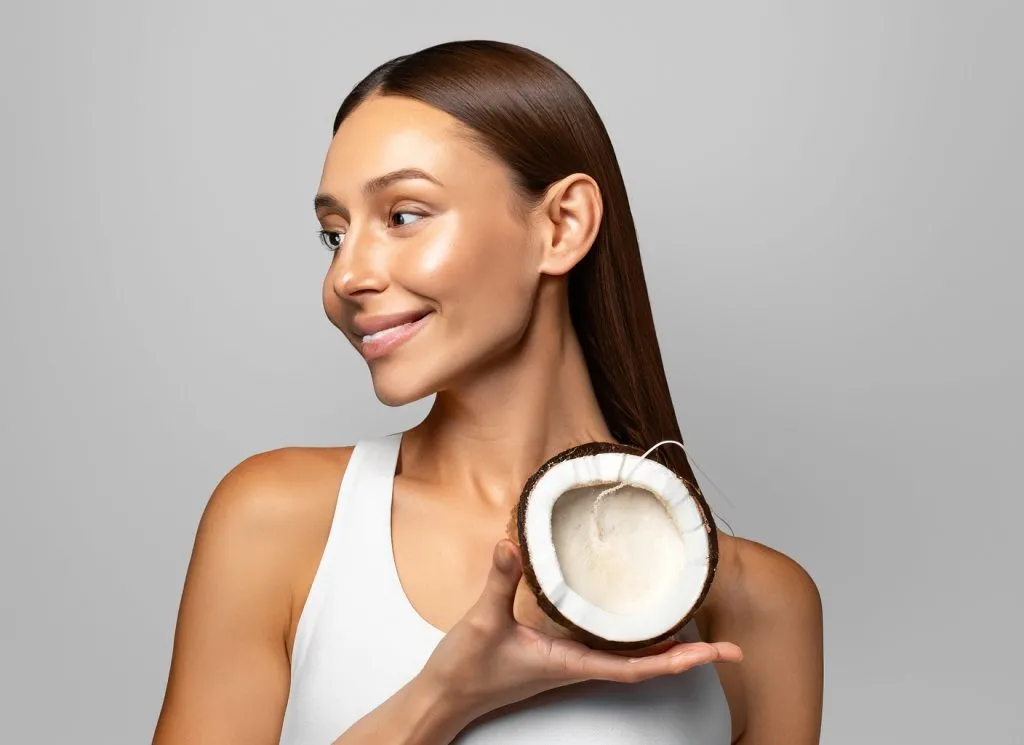From Application to Selection: Making the Most of Coconut Oil for Hair
The versatility of coconut oil in hair care is undeniable. Whether used as a pre-shampoo treatment or a leave-in conditioner, its benefits are plentiful. However, to get the most out of this natural remedy, understanding the how-to, the potential risks, and the best type of coconut oil is crucial.
Methods to Use Coconut Oil for Hair Repair
- Pre-Shampoo Treatment:
- Apply coconut oil to dry hair, focusing on the ends and damaged sections.
- Leave it on for 30 minutes to an hour before shampooing. This can protect hair from the potential drying effects of shampoo.
- Deep Conditioner:
- After shampooing, apply a generous amount of coconut oil to wet hair.
- Cover with a shower cap and let it sit for at least an hour or overnight for intensive treatment. Rinse thoroughly.
- Leave-In Conditioner:
- After washing and conditioning, apply a small amount of coconut oil to damp hair, especially on the ends.
- Style as usual. This provides continuous nourishment and protection throughout the day.
Potential Risks and Side Effects
- Allergic Reactions: While rare, some individuals might experience allergic reactions to coconut oil. Always conduct a patch test before full application.
- Build-Up: Coconut oil, if used excessively, can lead to build-up, making hair feel greasy or heavy. It’s essential to find a balance and use it in moderation.
- Not Suitable for All Hair Types: People with fine hair or those prone to oily scalps might find coconut oil too heavy. It’s crucial to understand your hair type and needs.
Choosing the Right Coconut Oil for Hair Repair
- Virgin Coconut Oil: This is the most unrefined form, retaining most of its natural nutrients. It’s considered the best type for hair repair due to its purity and nutrient content.
- Refined Coconut Oil: It undergoes more processing compared to virgin coconut oil. While it might still offer benefits, it’s less potent in its nutrient profile.
- Fractionated Coconut Oil: This type retains its liquid form, with some fatty acids removed. It’s lightweight and can be suitable for those who find regular coconut oil too heavy.
Conclusion
Coconut oil, with its natural richness and versatility, can be a boon for damaged hair. However, as with all remedies, it’s essential to be informed, choose the right type, and be aware of potential risks. Paired with this knowledge, coconut oil can be a valuable addition to one’s hair care routine.

